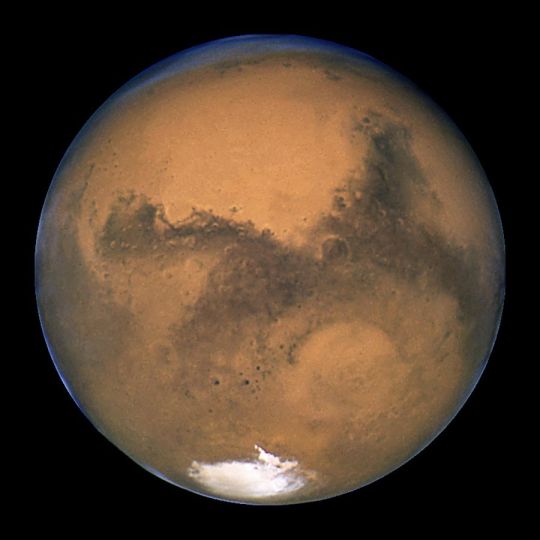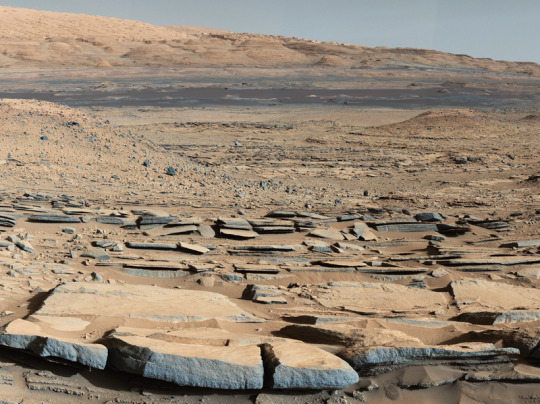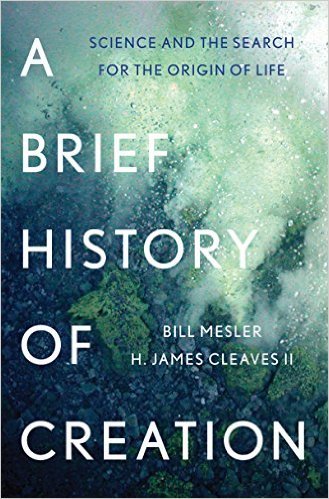Did life originate on Mars?

“Mars 23 aug 2003 hubble” by NASA, ESA, and The Hubble Heritage Team (STScI/AURA) – Licensed under Public Domain via Commons
Following NASA’s recent discovery of water on Mars, NPR Blog 13.7 Cosmos and Culture’s Bill Mesler, who co-authored the forthcoming book A
BRIEF HISTORY OF CREATION: SCIENCE AND THE SEARCH FOR THE ORIGIN OF
LIFE, wonders “Did Life Begin on Mars?”

A view from the “Kimberley” formation on Mars taken by NASA’s Curiosity rover.
Photo: NASA
NASA’s recent discovery of water on Mars has rekindled hopes that we may yet find neighbors in our solar system. But other things we’ve learned about Mars — and particularly ancient Mars — give us clues suggesting we should consider the possibility that we have already discovered Martian life. They might also hold important implications for the most enduring mystery in science, the origin of life.
In recent years, the idea that life on Earth may have first arisen elsewhere — before migrating to our planet — has gained some traction. The theory is called “panspermia,” Greek for “life everywhere,” the name given it by the ancient philosopher Anaxagoras. It became particularly popular during the 19th century, partly because it explained some gaps in Darwin’s concept of evolution. The evolution of complex creatures, such as human beings, through natural selection was thought to require at least hundreds of millions of years. Such a timeframe was difficult to reconcile with 19th century estimates of the Earth’s age, something usually then measured in the tens of millions. Panspermia solved that problem — and two of the most accomplished scientists of the age became key proponents, the Swedish chemist Svante Arrhenius, director of the Nobel Institute, and Lord Kelvin, who was instrumental in formulating the theory of thermodynamics.

One of the more prominent advocates of Mars-based origin theory is chemist Steven Benner, a founder of the Westheimer Institute at the Foundation for Applied Molecular Evolution in Gainesville, Florida. Like others working with an RNA World model, Benner’s goal has been to find a pathway from simple organics to a simple organism of self-replicating RNA, something that has proven exceedingly difficult under conditions likely found in the early Earth. But Benner has discovered that the binding of organics into rudimentary RNA can be eased by the presence of borate and molybdate. Oxygen would be required for the compounds to form, and our planet had none until the advent of life. Neither was likely present in the early Earth. However, the atmosphere of ancient Mars likely contained oxygen, and the planet could well have had ample supplies of borate and molybdate.
Read the rest of Mesler’s fascinating article at NPR Blog 13.7 Cosmos and Culture.
